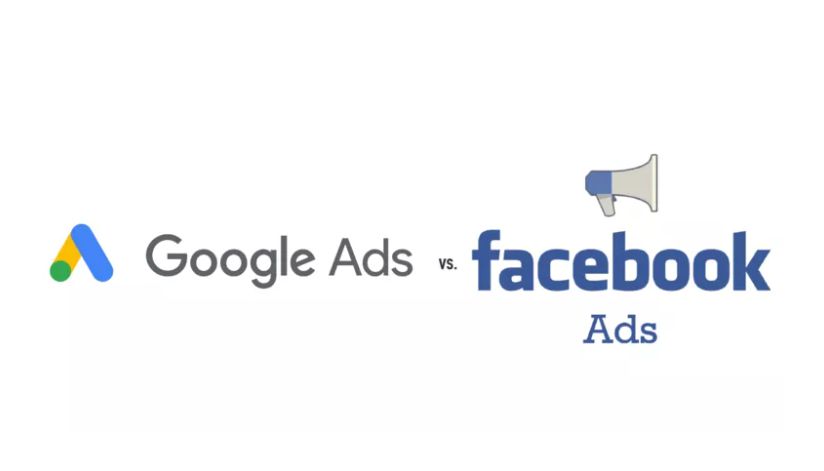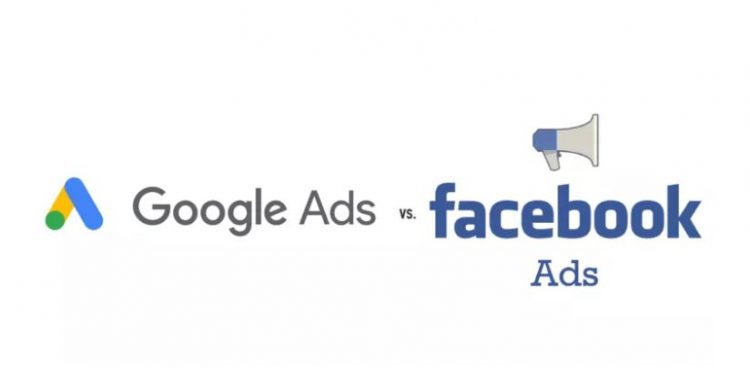There are various options for switching paid advertising on the Internet. The most important providers are Google Ads and Facebook Ads. Many companies ask themselves whether advertisements on Google or Facebook make more sense. We present the advantages and disadvantages of the two forms of advertising below.

Advertisements with Google Ads – for a large range
Google is the largest and most used search engine that covers over 90 % of all search queries worldwide. Google Ads are paid advertisements that either appear as classic text ads in the search results lists of the Google views (SERPS) or as advertising in the display network. Text ads in the SERPs are always displayed to the Google user when he types a certain search word on Google. Advertising ads in the display network are shown on the affected side due to defined keywords.
Advantages of Google Ads
- Due to the awareness of the search engine, Google Ads have the greatest range that can be achieved on the Internet.
- The advertisements on Google can be switched to any conceivable keyword in order to also address completely new target groups.
- With Google Ads, facts, such as free shipping, special offers, or discounts, can be made aware of yourself.
- Due to the large range, Google Ads are ideal for addressing larger, various target groups and for recruiting new customers.
Disadvantages of Google Ads
- Due to the large range, there is more loss of scattering if the keywords are not selected enough.
- The text ads in the search results are not particularly appealing.
- With hard-fought keywords, the ads are relatively expensive.
Social media ads with Facebook ads-for exact targeting
Facebook has less reach than Google, but with 2.5 billion active users still has a lot of audience. The social media platform scores primarily with the data of its users, which means that particularly targeted targeting is possible on Facebook Ads. This enables you to display your Facebook ads specifically to specific user groups with specified properties.
Advantages of Facebook ads
- The precise targeting can address very specific target groups, such as SportFaffine men over 50 from small cities in southern Germany.
- No examination of keywords and search intentions is necessary because the ads are simply displayed to the right users.
- The interaction on Facebook enables communication with potential customers so that branding is promoted.
- With the Feature Lookalike Audience, completely new target groups that the company does not know, but are similar to existing customers and are therefore also interested in the company.
- Facebook ads are visually appealing and offer many functions that motivate potential customers to click and buy.
- Facebook ads can win new fans for the Facebook page.
Disadvantages of Facebook ads
- Facebook has a lower reach than Google.
- Potential customers are not picked up directly in front of a conversion.
- The company must have an actively operated Facebook page.
Read Also: The Right Way To Run Facebook Ads As A Real Estate Investor
Conclusion: It depends!
Google ads are played in the SERPS or in the display network for certain keywords. They are ideal to draw potential customers who are already in the purchase decision phase with tempting facts to draw attention to their own offer and to encourage them directly for sale.
Facebook ads are only displayed to selected target groups through the exact Facebook targeting. They are more visually appealing and are therefore particularly suitable for stimulating buying impulses, emotional branding, and long-term customer loyalty.
Depending on the goal that you want to achieve with your advertisements, both Google Ads and Facebook Ads can be exactly right for your company. Both display types should best be combined for comprehensive online marketing.














































